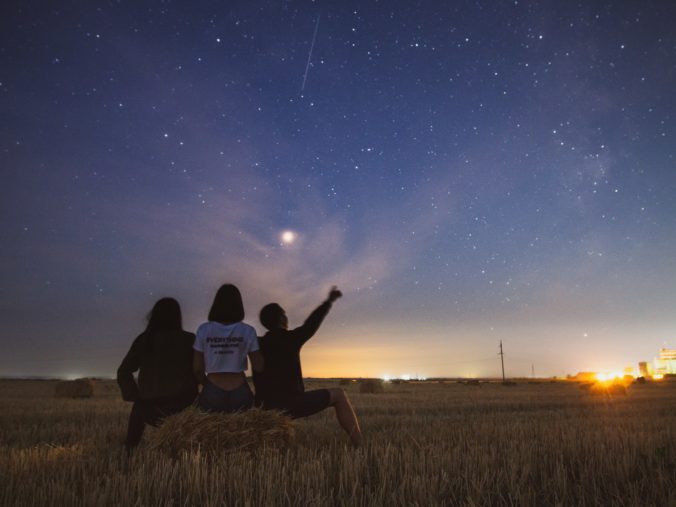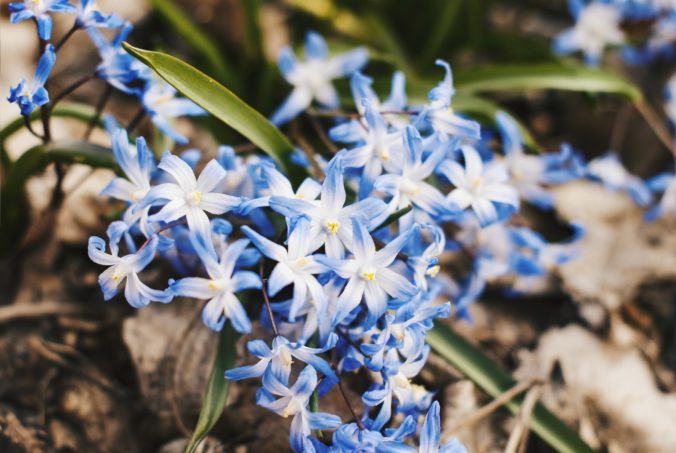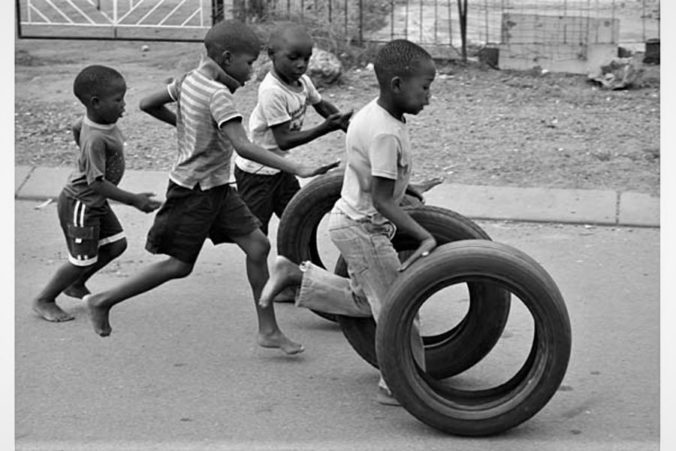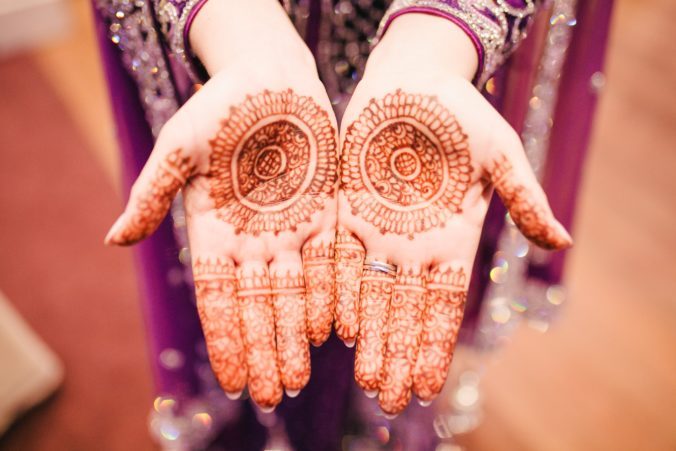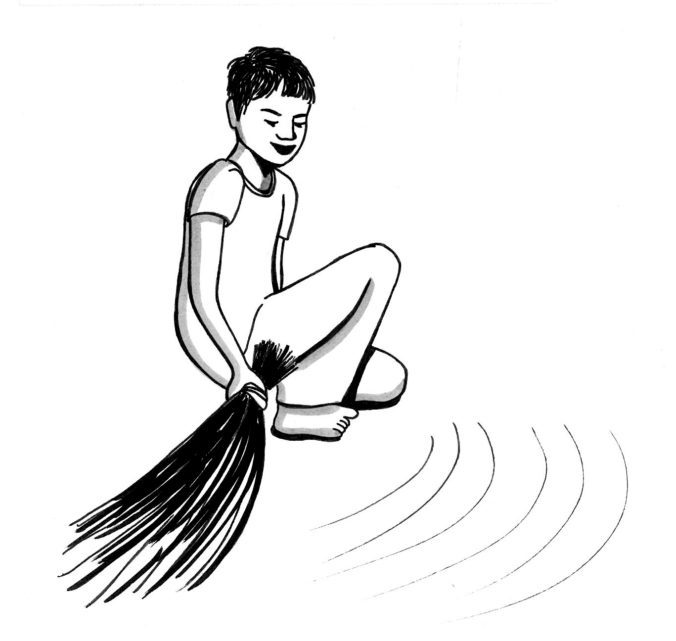Seven floors up in the sky, tied between two unfinished columns, a saree swayed gently with a toddler as its guest. A 2-month-old baby slept in sublime peace in the makeshift swing, as if convinced that when he opens his eyes, his home would finally be ready.
But for his father Bala, who pours concrete for most of the day at the construction site, there is no place called home. He only knows floors. Last month he and his family lived on the 5th floor of the skyscraper to be. Once the floor was in place, they moved to the 6th floor with a few fellow labourers. And just yesterday, they’d moved to the 7th floor, their new address until the concrete sets, and it’s time to move again. He’d made peace with the idea that the people who build houses for others may never live in a house of their own.
A thin layer of cement covered the life of his family. The few belongings that they had – a tin suitcase, some aluminium pots and pans, a broken mirror and a few drab clothes – spoke of the grey monotony of their life.
That day, as Bala was pouring water on the beams of concrete for curing, his wife Suparna filled a potful of water from the hose and told her man smilingly,
‘I am making something special for tonight’s dinner.’
‘Accha? Why so?’ he asked.
‘It is a special day, that’s why!’ she said a little loudly to be heard above the rattle of the water pump.
That left Bala wondering if the spike in decibel level in his wife’s reply signalled an impending tussle.
‘Is it her birthday today? What else could be special for a woman!’ he thought.
He got back to work, hoping to get off duty when the siren went off at 5 p.m. at the mill nearby. The contractor was away for the day, and he thought, if he finished the work earlier than expected, he could wrestle out some moments of rest from a painful and inhuman work schedule.
With the parting sun, the warm gusts of air changed to a cool breeze as the evening gradually set in.
Once Bala was done with pouring water over the concrete casts, he shut the water pump and called it a day in his mind.
However, how much of the day was yet to unfold was beyond his imagination.
He sat on a bamboo scaffold resting on the outer wall of the building and watched the sun sink slowly.
‘It is her birthday and I have nothing to share with her. How could I forget? But how can I be expected to remember that. It’s her first birthday since we got married!’
Wondering thus, he looked at the clear blue sky to find eagles circling far above, as if hovering over their prey. A languid lake shimmered at a distance. The view from the unfinished 7th floor was remarkable indeed. He wondered if his village at the outskirts of the city would be visible from the 25th floor once the building construction is finished. And with that thought, came a longing to live as simply as he used to, in the village. But that was an illegitimate dream in the eyes of society.
To cloud his happy memories of the village, he lit a beedi. As the spent matchstick sailed down, he looked down through the slots on the bamboo scaffolding to follow its trail.
Once he lost track of the matchstick, his eyes slowly regained focus. Down below, he saw a huge safety net tied all around the building on the 4th floor. This fairly new safety feature reminded him of his friend Pradhan, who had to fall from the 4th floor while at work a few months ago to ensure that the contractor paid an iota of attention towards worker safety. Pradhaan succumbed to the accidental fall, leaving Bala alone, for the first time since they’d known each other. A fall, a splat, and 20 years of friendship, gone with the wind.
The lake at the distance and the safety net underneath reminded Bala of childhood days, when he and Pradhaan would catch fish at the village pond.
He remembered what Pradhaan used to say on days when they could only catch a few small fish in their net. While Bala would get frustrated, Pradhaan would always say,
‘Bala! Be happy with what we have. Let the few fish caught in the net become the dinner. The fish that escaped the net, deserve their life.’
And that would comfort Bala on a bad day at fishing. And those few fish would always taste good when smoked on a fire and shared with his closest friend, the ever-optimistic Pradhaan.
Wondering about the idyllic time with his late friend, he fell asleep on the bamboo scaffolding. Floating in the ocean on memories, he smiled and turned gently to his right. With that move, his body lost contact with the scaffold and he fell through the air, three floors down, where a huge safety net cushioned his fall.
The last thing he heard before losing consciousness was the collective cry of his fellow workers all around.
A few hours later, he woke up to the yelling of the contractor. He’d been unconscious for some time now. His fall had forced the contractor to rush back to the site in the evening. The cherubic contractor weighed as much as Bala’s entire family. The contractor’s head was as bald as the eagles’ that hovered in the sky. The 7th-floor inhabitants were fretting from the rousing reprimand of the contractor.
Bala faked a drowsy state for a while to dissuade his employer from shouting anymore. As he showed signs of recovery, the contractor felt relieved that Bala was not going to die. Another casualty on site was the last thing he wanted.
Entrusting Bala’s well-being to his floor-mates and his wife, Suparna, the contractor left the site hurriedly, as if fleeing from a crime scene.
Things began to settle down at the village in the sky.
Still feeling a bit disoriented, Bala tried to remember what had happened to him.
It was late in the evening. The son cried from the rocking swing, as if complaining, ‘Why isn’t my house ready yet?’ Suparna pacified her son with loving affection.
Meanwhile, Bala remembered what he was thinking about just before he fell. He was remembering Pradhaan’s consolatory words after an unsuccessful day at fishing…
‘Bala! Let the few fish caught in the net become the dinner. The fish that escaped the net, deserve their life.’
As he woke up gradually, an ironic smile surfaced on his face. Looking up at the sky, he whispered gently to his deceased friend,
‘Pradhaan,
I am the fish who got caught in the net. And you are the fish who managed to escape!’
Suparna left the dinner pot simmering and rushed to check on Bala. He was wide awake now.
‘Don’t breathe a word. Dinner is ready. Let’s just eat together’ she said.
‘Ah, what’s for dinner?’ he asked.
‘Maccher-jhol (Fish Curry)’ she said softly, with a touch of affection.
Bala gulped.
The smell of the fish stew permeated each crevice on the unfinished 7th floor of ‘Aquarium high-rise residency.’


